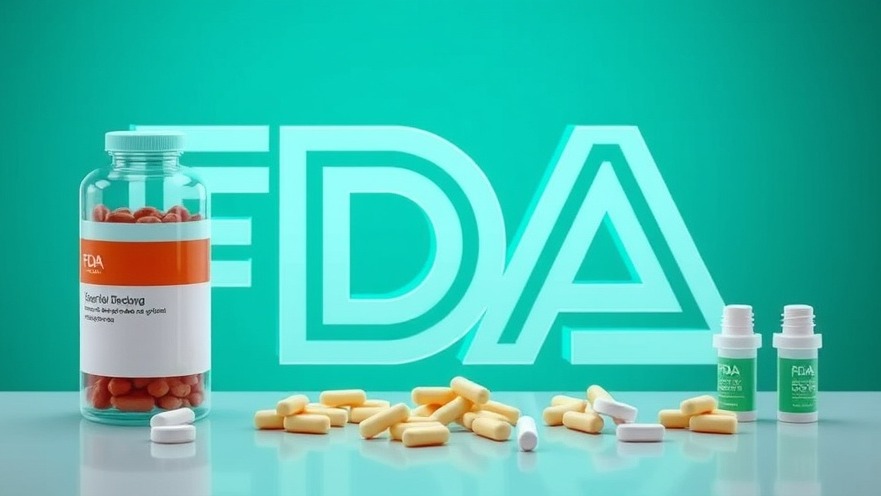
Understanding 7-OH and the FDA's Recent Move
The FDA has recently taken a significant step by requesting the Drug Enforcement Administration (DEA) to classify 7-hydroxymitragynine, commonly known as 7-OH, as a Schedule I controlled substance. This decision comes amidst rising concerns regarding the compound's potential for abuse and its growing presence in everyday products.
FDA Commissioner Martin Makary, MD, MPH, highlighted that 7-OH is a synthetic byproduct of kratom, a plant-derived substance. Although kratom is still legal in some form, 7-OH presents unique risks due to its opioid-like properties.
Why Should Concierge Practices Pay Attention?
For medical concierge practitioners, this development is not just a regulatory issue — it's a reflection of an evolving landscape in patient care and safety. Patients may unknowingly consume dangerous compounds when seeking relief or recreational products marketed as safe. By being aware of these trends, you can engage in more informed conversations with your patients, potentially enhancing your relationship with them and establishing your practice as a trusted source of information.
The Market Surge of 7-OH
7-OH has started popping up in various recreational products, including vapes, gummies, and drinks sold at convenience stores and gas stations, which raises serious public health concerns. As it binds to the mu-receptor in the brain — the same receptor that opioids target — its appearance in easily accessible consumables poses a substantial risk to consumers. Practices should be proactive in educating patients about the potential content of products they might be using.
How This Affects Your Practice
As a concierge medical practice, staying ahead of regulatory changes concerning substances like 7-OH can set you apart from traditional healthcare providers. You have the unique opportunity to educate your patients about safe consumption and the risks associated with emerging substances. That guidance can reinforce the position of your practice as a holistic health provider prioritizing patient safety.
Actionable Steps for Concierge Practices
Consider these steps to navigate the regulatory landscape effectively:
Educate Your Staff: Ensure that everyone in your office is aware of 7-OH and its implications. Training sessions can empower your team to share valuable insights with patients.
Create Informative Resources: Develop handouts or digital content outlining the effects and risks of 7-OH, actively distributing this information during patient visits.
Open Communication Channels: Encourage your patients to discuss any products they may be using that could contain 7-OH or other potentially harmful compounds.
Emphasizing Patient-Centric Care
Engaging patients through education about substances like 7-OH not only grows your practice's reputation but also aligns with the core values of concierge medicine: comprehensive, patient-centered care. By taking a proactive stand on issues affecting public health, you position yourself as not just a physician, but a true partner in their wellness journey.
To elevate your practice further, consider implementing strategies that reinforce your commitment to patient education and safety—these measures can significantly enhance your practice's standing in the local community.
 Add Row
Add Row  Add
Add 




Write A Comment